DIY Bentonite Clay Mask To Get Shiny Hair
By: Priyanka Maheshwari Mon, 22 Aug 2022 12:36:23
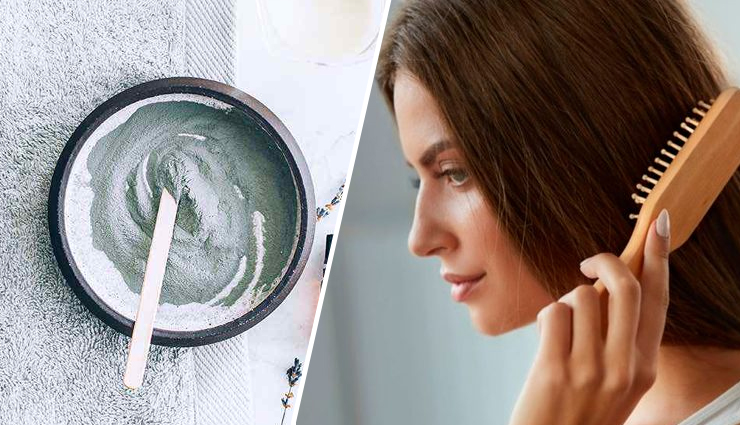
Bentonite is an organic colloidal clay replete with minerals that can do wonders for your skin and hair. It mainly consists of sodium and calcium montmorillonites, which both fall in the smectite category.
Smectite minerals rapidly absorb water and expand up to eight times their original size, but this may vary from clay to clay.
Bentonite is found in places where volcanic ash has settled in the ground, especially under. This ash contains volcanic glass that breaks down into clay minerals when exposed to water over a prolonged period.
The clay is mined and sun-dried before being packaged for commercial purposes.It is a commonly used ingredient in a number of skin and hair products, which points to its efficacy.
This article will focus on the hair benefits of bentonite and how to use it in DIY hair masks that aim to cleanse, moisturize, and repair dull, damaged tresses.
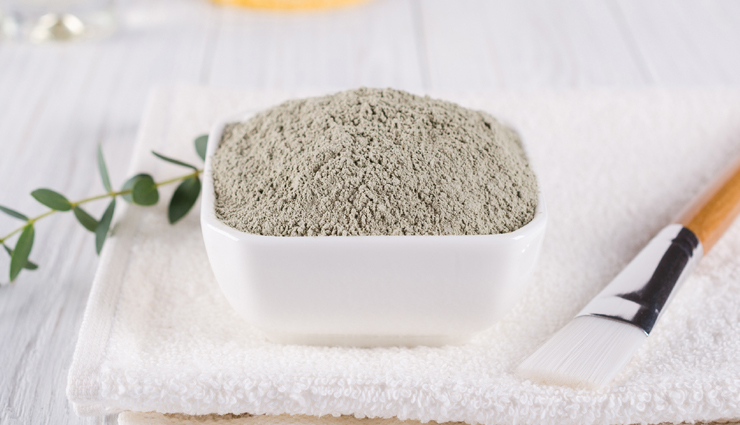
Know The Ingredients
# Bentonite clay
Bentonite clay is anionic, which means it carries a negative electric charge. As rules of physics go, it naturally attracts cationic substances that carry a positive electric charge.
When used in a hair mask, it works like a magnet, drawing out the pollutants, impurities, chemicals, and other products settled on your hair and scalp. When you rinse out the clay mask, all the toxins get washed away with it.
This deep cleansing effect unclogs the hair follicles so that they can absorb nutrients and water for healthy hair growth. Clean, nourished hair is bound to be more lustrous, which is a great plus.
But there is more to bentonite than just its detoxifying effects. It contains essential hair-building minerals, including sodium, potassium, and calcium. It is also a strong antimicrobial that helps fight and prevent scalp infections.
Bentonite soothes scalp irritation and flaking, especially in people suffering from inflammatory skin conditions such as psoriasis and seborrheic dermatitis. Lastly, bentonite hair masks can make your unruly locks more manageable by reducing frizz and improving curl definition.
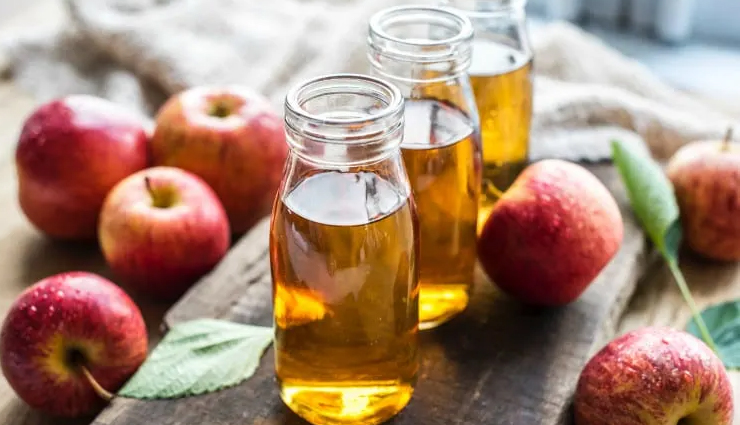
# Apple cider vinegar
Apple cider vinegar (ACV) is credited with strong antimicrobial activity that can help ward off scalp infections.
The acidic nature of ACV also renders the scalp environment inhospitable for microbial growth. It is a weak acid with a low pH that coats the hair shaft and shrinks its outermost layer (cuticle) so that it becomes tight and impervious. This helps reduce moisture loss from your hair.
ACV also helps relieve the itching, irritation, and flakiness associated with dandruff, psoriasis, and seborrheic dermatitis. It can also add a healthy shine to hair.
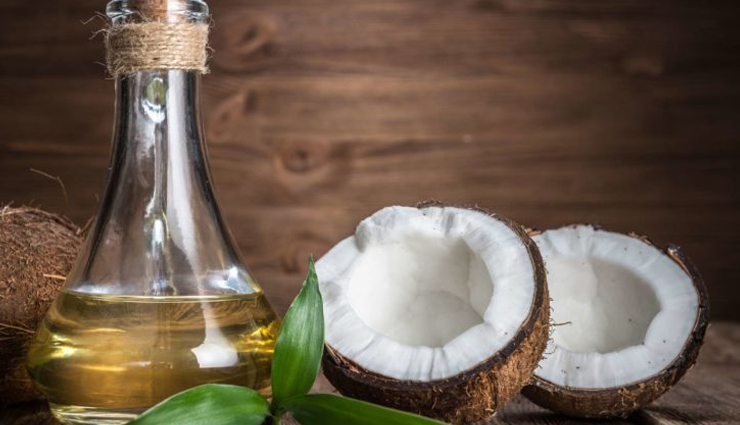
# Coconut oil
Coconut oil is richly endowed with saturated fats, vitamins, and antioxidants that benefit the hair in different ways.
This oil also has a low molecular weight, which allows it to seep into the hair shaft. In fact, it is one of the most absorbent hair oils there is. It penetrates the shaft to moisturize it from within but also forms a protective layer over it to prevent protein breakdown by external irritants.
You can use coconut oil daily for hair conditioning without the risk of side effects associated with most commercial products. Moreover, rubbing it on your scalp helps enhance blood flow to the hair follicles for improved hair growth.
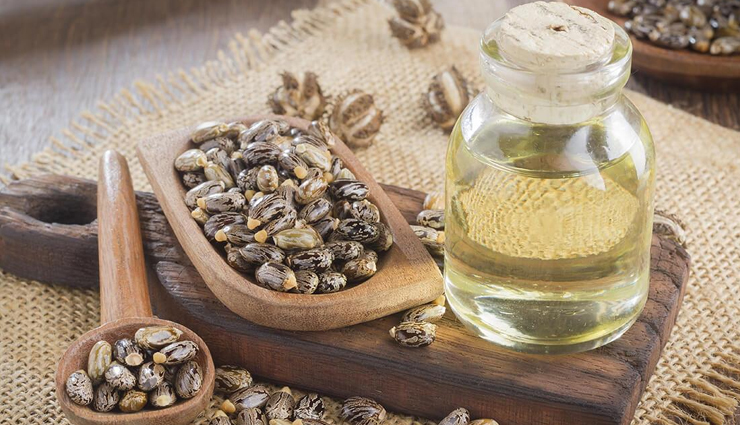
# Castor oil
Castor oil is enriched with ricinoleic acid and omega-6 fatty acids (4) that hydrate both hair and scalp.
A gentle head massage with this oil stimulates blood circulation in the scalp, thus bringing more nutrients and oxygen to the hair follicles. The improved nourishment promotes healthier, thicker, and faster hair growth.
Castor oil also binds the moisture to the hair for long-lasting hydration. It also works as an antimicrobial agent to banish scalp infections such as dandruff.
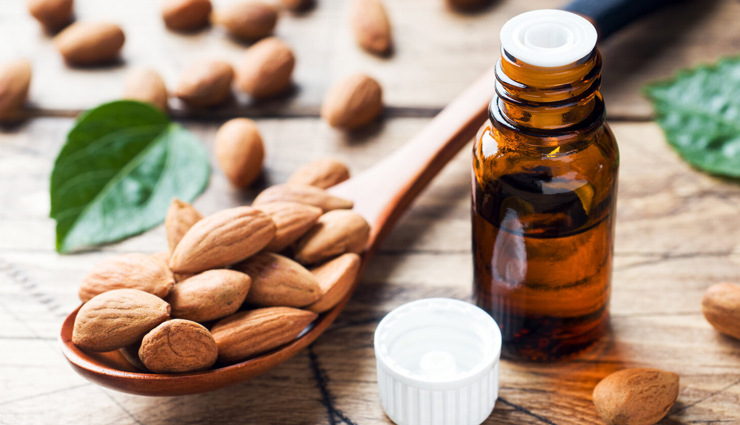
# Sweet almond oil
Sweet almond oil contains proteins, magnesium, vitamin E, fatty acids, and antioxidants that nourish and protect hair.
Protein and magnesium are key hair-building nutrients that help the tresses go longer and stronger. Fatty acids impart moisture to your hair and lock it in for a soft, smooth, and shiny finish.
Antioxidants such as vitamin E help counteract the activity of free radicals that cause a great deal of hair damage.
Thus, this single ingredient helps condition the hair while also fighting hair fall and breakage.
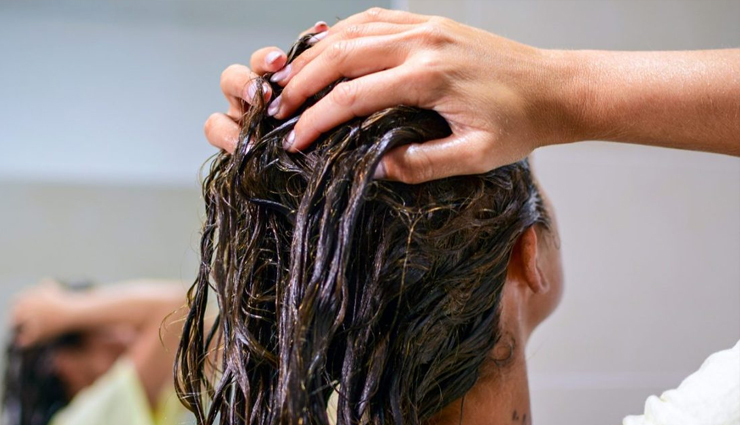
Hair Mask Recipe
- Get a wooden, plastic, or glass bowl and a nonmetallic spoon to prepare this mask.
- Add ½ cup bentonite clay to the bowl.
- Pour in 1 tablespoon of coconut oil, ½ tablespoon of castor oil, and ½ tablespoon of almond oil in the bowl, and mix all the ingredients using a nonmetallic spoon.
- Add 6 tablespoons of ACV into the mix, and let it froth for 15 seconds before giving it a vigorous stir to remove any lumps.
- Let the mixture settle down for a few minutes such that it acquires a smooth, yogurt-like consistency.
- If you feel like the mask is too thick, dilute it with a bit of water. If it’s too runny, you can add a little bit of clay to thicken it. Ideally, it should be thick enough to stick to your hair and scalp.
How To use
- The mask is easier to apply on damp hair, so start with a hair wash.
- Divide your moist hair into sections, and apply the mask to each of them one by one. Start from the roots and proceed to the tips.
- If your hair starts drying in the middle of this process, use a spray bottle to spritz some water on it.
- Once you are done applying the mask, roll up your hair and cover it with a shower cap.
- Leave the mask on for at least 20 minutes before rinsing it out with warm water, and shampoo if you need to.
- Apply a conditioner on the washed hair for a few minutes, followed by a final rinse.





